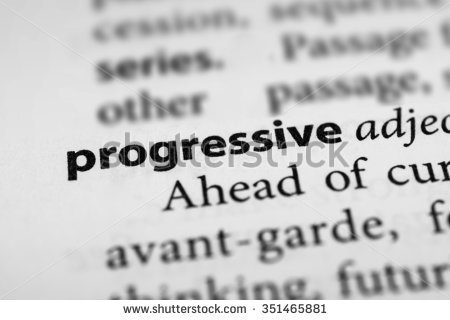A couple of days ago, the following from Franklin Graham came across my Twitter feed:
Christians should be aware of candidates who call themselves progressive. Progressive is generally just a code word for someone who leans toward socialism, who does not believe in God, & who will likely vote against Godly principles that are so important to our nation.

In context, Franklin’s tweet came in the wake of a progressive judge winning a seat on the Wisconsin Supreme Court this past week; his annoyance probably came from his having tweeted ahead of the election that good Christians needed to get out and vote to keep this from happening, and it happened anyways.
I do not follow Franklin Graham on Twitter and don’t know how this tweet came across my feed (probably the result of some mindless retweet by one of my friends), but I just had to respond.
Dear Franklin. I am a progressive Christian (not an oxymoron). I believe that we should act as the early Christian churches in Acts 2 and 4, who contributed all they had to the community, who then distributed to everyone as they needed. Guess they were socialists.
I had to respond because I knew, since I was scheduled to be lector at the early show at church this morning, that today’s New Testament lectionary reading is precisely the passage from Acts 4 that I referenced in my tweet.
Now the whole group of those who believed were of one heart and soul, and no one claimed private ownership of any possessions, but everything they owned was held in common. With great power the apostles gave their testimony to the resurrection of the Lord Jesus, and great grace was upon them all. There was not a needy person among them, for as many as owned lands or houses sold them and brought the proceeds of what was sold. They laid it at the apostles’ feet, and it was distributed to each as any had need.
I’m not sure what Franklin means by “socialist,” but I’ll bet it’s something like what the early Jesus-follower communities are doing in Acts 4. I don’t know if the members of these communities believed in God or endorsed Godly principles, but my guess is they probably at least thought that they did.
This passage from Acts 4, along with a similar description of the early communities two chapters earlier, has become one of my favorite texts to use with freshman students—many of them Business majors and also products of a Catholic upbringing—just to observe their reactions as they watch capitalism get thrown under the bus. I recall a couple of semesters ago when this very topic came up in a seminar focusing on various articles from Thomas Aquinas’ Summa Theologica. Usually this is the sort of text that requires all of my experience and skill to keep people (including myself) from falling asleep.
But this seminar turned out to be one of the liveliest I had all semester, indeed one of the liveliest in recent memory. That’s because wedged into the middle of several articles on various law-related topics, Aquinas asks a very practical and contemporary-sounding question: “Whether it is lawful to steal through stress of need?” His answer caused my young students, most at least marginally Catholic and more-than-marginal budding capitalists, to learn something they should have learned from watching Sesame Street—some things just don’t go together.
Summa Theologica 2.2, Question 66, Article 7 is framed within the parameters of Aquinas’ understanding of eternal law, natural law, and human law. “Eternal law” is the Divine rational governance of the universe as a cosmic community, while “Human law” is our human version of the same activity, the project of applying rational governance to our activities as individuals and communities. “Natural law” serves as a bridge between eternal and human law; it is the imprint of the eternal Law in the nature of things. In Aquinas’ own words,
The light of natural reason, whereby we discern what is good and what is evil, which is the function of the natural law, is nothing else than an imprint on us of the Divine light. It is therefore evient that the natural law is nothing else than the rational creature’s participation in the eternal law.”
At its best, human law is an objective, enforceable expression of what we know from the natural law em-bedded in our natures to be right and wrong. But, of course, things are never that simple.
Which brings us to “Whether it is lawful to steal through stress of need?” If he had been writing several centuries later, Aquinas would have illustrated his discussion with Victor Hugo’s story of Jean Valjean and Javert from Les Miserables. Valjean steals food to feed his starving niece and nephew, is arrested for theft and sentenced to twenty years in prison according to the applicable law. He escapes from prison and, through years of complications is pursued by an obsessively dedicated policeman, Javert. Using Aquinas’ categories of law, the conflict between Javert and Valjean reflects the tension that can arise between human law and natural law. Which one of them has “right” on his side? Valjean or Javert?
After listing some preliminary objections, Aquinas is very clear about “Whether it is lawful to steal through stress of need.”
In cases of need, all things are common property, so there would seem to be no sin in taking another’s property, for need has made it common.
In other words, Valjean’s taking of food owned by another to save his family members trumps property rights. Javert’s insistence that the letter of the law against theft be inexorably applied is misdirected energy.
This in itself made my students uncomfortable; Aquinas’ explanation of his position made some of them downright pissed.
Whatever certain persons have in superabundance is due, by natural law, to the purpose of succoring the poor.
Briefly put, if you have more than you need, that surplus literally does not belong to you. And in case you missed that, Aquinas quotes the earlier Church father Ambrose:
It is the hungry man’s bread that you withhold, the naked man’s cloak that you store away, the money that you bury in the earth is the price of the poor man’s ransom and freedom.
“That sounds like communism!” several of my students complained, believing–as many in our capitalist world believe–that such an accusation signifies the effective and immediate end of the conversation. “Not really,” I responded, “but you know what it does remind me of? The early Christian communities in the Book of Acts. Remember them from last semester?”
We learn in Acts 5, immediately after today’s lectionary reading, that these communities were so dedicated to the principle of common ownership of goods and distribution of those goods according to need that people were reportedly struck dead for claiming to be dedicated to the principle and lying about it. If Aquinas had been in attendance at my seminar, the ensuing conversation might have gone something like this:
Student 1: My property belongs to me! I worked for it and no one has a right to it other than me!
Aquinas: I agree—to a point. “Each one is entrusted with the stewardship of his own things, so that out of them he may come to the aid of those who are in need.” The purpose of property ownership is to facilitate your responsibility to ensure that those in need are taken care of.
Student 2: But I worked hard for what I own! No one has the right to tell me what to do with it!
Aquinas: You’re assuming that you are more important than others, that the purpose of labor is your own enrichment and benefit rather than the community’s.
Student 3: I’m more than happy to consider giving of my surplus to those in need—I’m not heartless, and I usually get a tax deduction when I do. But I’m not obligated to do it.
Aquinas: According to the natural law, you are.
Student 4: But what if the person in need is lazy? Or a drug addict? Or just a loser? What if she doesn’t deserve my help?
Aquinas: None of that matters. Why the person is in need is irrelevant. She is in need. You have the capacity to help her. End of story.
Student 4: This is ridiculous! It’s naive, unrealistic, idealistic, and will never work. Where did you ever get such a dumb idea?
Aquinas: I know of a guy who gave an important talk once that’s all about this. It’s called the Sermon on the Mount. Check it out.
In one very brief article, Aquinas challenges our most basic capitalist assumptions—that my property belongs to me, that I may give of my surplus to those in need if I choose but am not obligated to do so, that before I help a person in need I want to know why that person is in need, and so on.
But of course Aquinas isn’t making a case for or against an economic system. He’s making a case for living out the directives of the gospel, directives given so often and so clearly that they can’t be missed.













